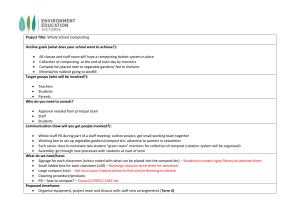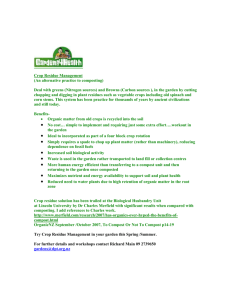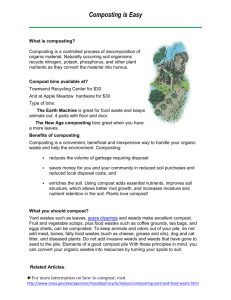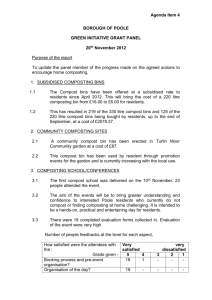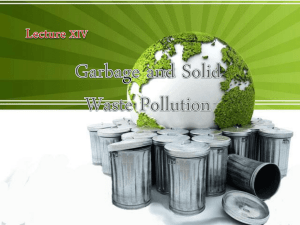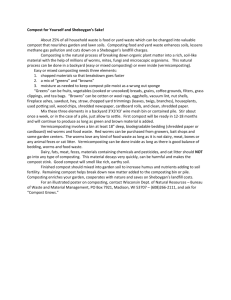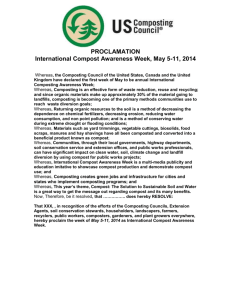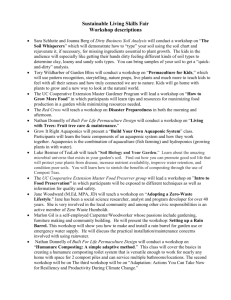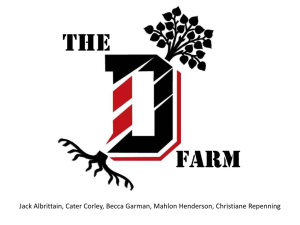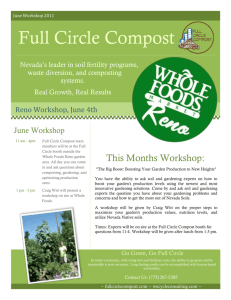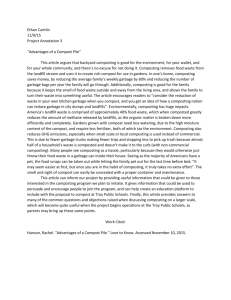Elizabeth_Greenest_Elizabeth-Campbell-Take-Part
advertisement
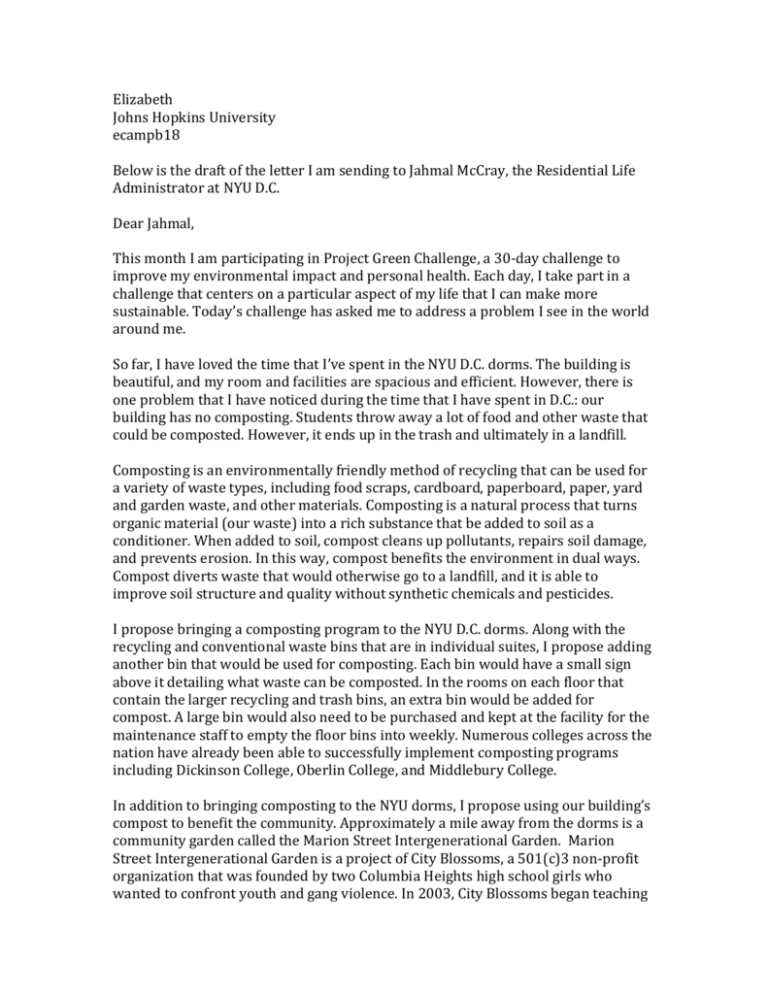
Elizabeth Johns Hopkins University ecampb18 Below is the draft of the letter I am sending to Jahmal McCray, the Residential Life Administrator at NYU D.C. Dear Jahmal, This month I am participating in Project Green Challenge, a 30-day challenge to improve my environmental impact and personal health. Each day, I take part in a challenge that centers on a particular aspect of my life that I can make more sustainable. Today’s challenge has asked me to address a problem I see in the world around me. So far, I have loved the time that I’ve spent in the NYU D.C. dorms. The building is beautiful, and my room and facilities are spacious and efficient. However, there is one problem that I have noticed during the time that I have spent in D.C.: our building has no composting. Students throw away a lot of food and other waste that could be composted. However, it ends up in the trash and ultimately in a landfill. Composting is an environmentally friendly method of recycling that can be used for a variety of waste types, including food scraps, cardboard, paperboard, paper, yard and garden waste, and other materials. Composting is a natural process that turns organic material (our waste) into a rich substance that be added to soil as a conditioner. When added to soil, compost cleans up pollutants, repairs soil damage, and prevents erosion. In this way, compost benefits the environment in dual ways. Compost diverts waste that would otherwise go to a landfill, and it is able to improve soil structure and quality without synthetic chemicals and pesticides. I propose bringing a composting program to the NYU D.C. dorms. Along with the recycling and conventional waste bins that are in individual suites, I propose adding another bin that would be used for composting. Each bin would have a small sign above it detailing what waste can be composted. In the rooms on each floor that contain the larger recycling and trash bins, an extra bin would be added for compost. A large bin would also need to be purchased and kept at the facility for the maintenance staff to empty the floor bins into weekly. Numerous colleges across the nation have already been able to successfully implement composting programs including Dickinson College, Oberlin College, and Middlebury College. In addition to bringing composting to the NYU dorms, I propose using our building’s compost to benefit the community. Approximately a mile away from the dorms is a community garden called the Marion Street Intergenerational Garden. Marion Street Intergenerational Garden is a project of City Blossoms, a 501(c)3 non-profit organization that was founded by two Columbia Heights high school girls who wanted to confront youth and gang violence. In 2003, City Blossoms began teaching year-long workshops in schools, after-school programs, and in summer camps. To date, City Blossoms has worked with over 3000 children and youth in the D.C. area. City Blossoms works with residents of all ages to enable artistic expression, increase awareness of the environment and healthy living skills, and develop the community. Since the garden is only about a mile away from the dorms, it would be fairly easy to transport the compost to. In this way, NYU would help to strengthen both soil and community bonds with its composting program. Thank you for taking the time to consider my dorm composting program proposal. I hope to discuss my idea further with you at your convenience. All the Best, Elizabeth Campbell Here is my screenshot from when I sent my letter:
